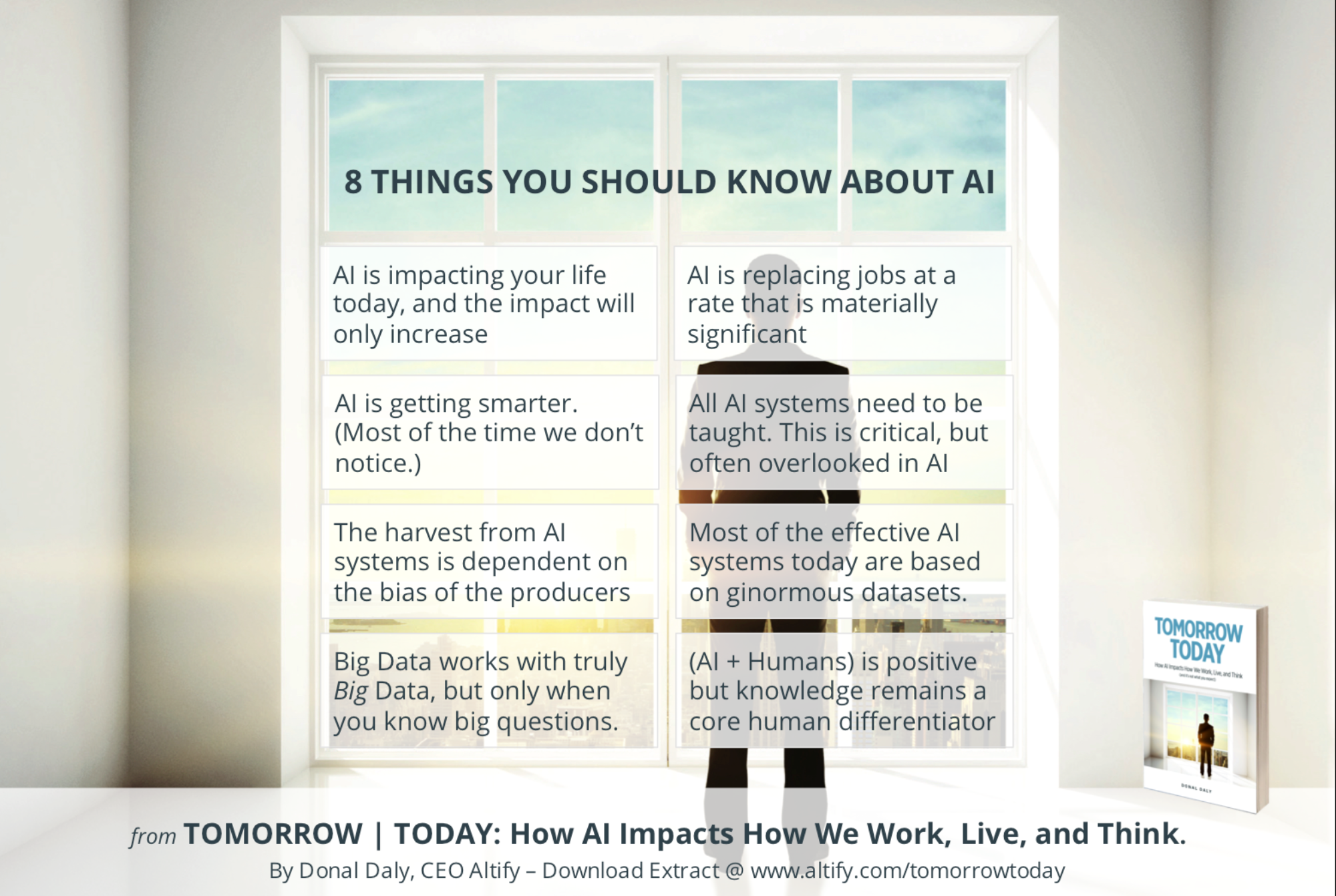As I conducted my research for TOMORROW | TODAY, I was struck by the divergence of thought that I found in other opinions. The AI debate, not unlike other major scientific developments, brings out polarized positions. Where extreme views were present, they were in evidence with philosophers taking a stance on one side—“We don’t even understand what consciousness is in humans, so thinking that we can bring that capability to machines is absurd”—and mathematicians or computer scientists arguing without equivocation on the other side. Others were truly frightened that, ungoverned, the developments in AI would, to echo Elon Musk, become “our greatest existential threat.” In terms of a common vision of the future, not much has changed since the Minsky / Englebart debate in the 1960s that is referenced in Chapter 2 of the book.
- MINSKY: We’re going to make machines intelligent. We are going to make them conscious!
- ENGELBART: You’re going to do all that for the machines? What are you going to do for the people?
But while polarized positions still exist, there is enough evidence of advancement in AI, of its impact on our lives, and on the lives of others, that there is a strategic imperative to respond. This, I feel, is no longer a matter of opinion, but as one of my college professors used to say: “We are all entitled to our own opinions, but we are not entitled to our own facts”. The facts are clear:
- AI is impacting your personal and professional life today, and the impact will only increase in the short and medium term.
- AI is replacing jobs at a rate that is materially significant and cannot be ignored. AI is moving from consumer- or task-based utility, to applications that are more knowledge-worker focused—though there are still many application areas that are beyond the capability of the machines.
- AI is getting smarter. (Most of the time we don’t notice.)
- All AI systems need to be taught about the domain to which they are being applied. This is a critical, but often overlooked, aspect of AI.
- The harvest from AI systems is dependent on the bias of those who plant the seeds or nourish the crop
- Most of the effective AI systems in use today are dependent on ginormous datasets.
- Big Data works when you truly have Big Data, but only when you know the big questions. Small Data matters too and that fact is particularly relevant to knowledge workers today.
- (AI + Humans) is greater than the sum of the parts. Knowledge remains a core differentiator for knowledge workers

If you want to read more of my blogs please subscribe to Think for a Living blog. Follow me on Twitter or connect on LinkedIn. I want you to agree or disagree with me, but most of all: I want you to bring passion to the conversation.
Donal Daly is Executive Chairman of Altify having founded the company in 2005. He is author of numerous books and ebooks including the Amazon #1 Best-sellers Account Planning in Salesforce and Tomorrow | Today: How AI Impacts How We Work, Live, and Think. Altify is Donal’s fifth global business enterprise.

